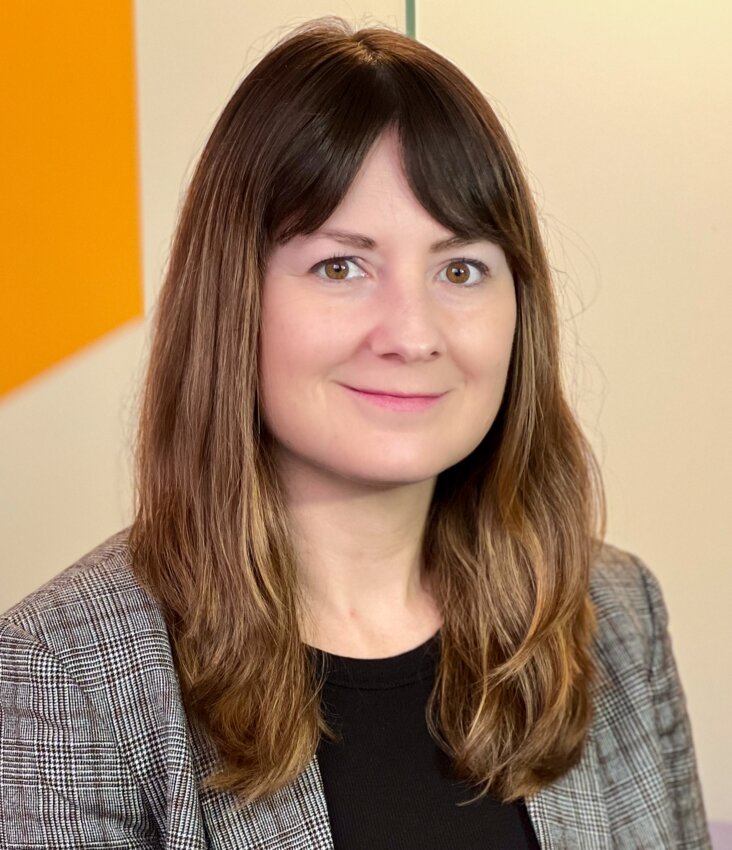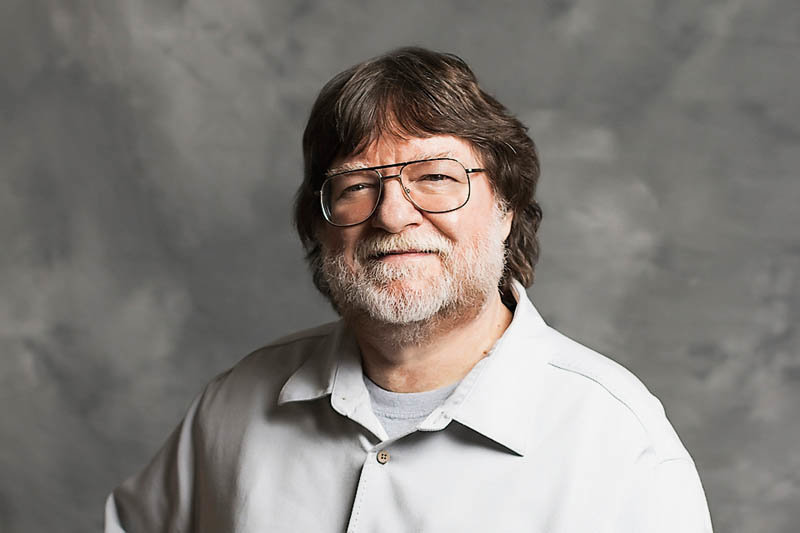Journalists are a resourceful lot. They must be able to cover their beats thoroughly and effectively. Being resourceful, however, is ever more challenging because of the complexity of public policy and social issues, increasing disinformation and vituperative political rhetoric.
Thankfully, journalists have editors to support and guide them, but the assistance journalists need has become more than editors can often provide. Dealing with the lack of government transparency, the difficulty accessing public records and the ever-present specter of lawsuits, social media attacks and violent acts mean journalists require another level of support.
Born from the upheavals of the 1970s, when the government issued reporters with a slew of subpoenas to reveal their confidential sources, the Reporters Committee for Freedom of the Press (RCFP) has had the backs of journalists, editors, publishers and all news professionals. It continues to be a major advocate for protecting newsgathering rights and a proactive fighter against governmental attempts to erode and limit the press’ First Amendment freedoms. It is constantly expanding its services, training programs and resources to keep pace with the daily legal challenges journalists face. The RCFP considers its proudest achievement that no reporter has ever paid for its assistance, which is entirely pro bono.
The power of the pen and the law

Journalists report the news, but in doing so, they also use the “power of the pen” to protect democracy and Americans’ right to know. Journalists also need the power of the law to protect the freedom of the press. Journalists and media attorneys can call the Reporter’s Committee Legal Hotline during regular business hours (Eastern time) for help with newsgathering questions and legal issues or at any time in emergencies, such as if a journalist has been arrested. According to Katie Townsend, RCFP’s deputy executive director and legal director, the hotline fields approximately 1,000 calls annually.
Townsend joined RCFP in 2014 as the first litigation director and became the legal director in 2018. She oversees all RCFP’s direct legal support provided by the organization’s staff attorneys and legal fellows. RCFP attorneys have a collective active docket of more than 100 litigations and advising matters at any given time, representing journalists, news organizations and sometimes the RCFP itself in state and federal courts.
“I was hired to start the first direct litigation program because the members of our steering committee recognized the economic situation the news media was facing had significantly impacted the willingness of many traditional news organizations to pursue particularly affirmative litigation,” Townsend said.
Townsend added that approximately 75% of RCFP attorneys’ litigation is focused on transparency, seeking access to public information under state open records laws and the federal Freedom of Information Act (FOIA), as well as to judicial proceedings and records. RCFP also defends journalists served subpoenas related to their reporting and named in defamation lawsuits.
Amicus, or “friend-of-the-court,” briefs are one of the legal tools RCFP uses to support journalists and public transparency. It files over 50 of them annually in federal and state court cases that impact press freedom and freedom of information, where the news media brings an important perspective. For example, in July 2024, RCFP led a collation of media organizations in filing an amicus brief in the Indiana Supreme Court regarding the standard for awarding attorney’s fees under the state’s access to public records law.
More legal protection for journalists with RCFP training and guides
The legal landscape is so nuanced, and our society is so litigious that RCFP proactively offers many free training programs and guides to enhance journalists’ knowledge and provide more legal protection.
“How to Know When You Need a Lawyer,” “Gathering the News Safely and Legally” and “Understanding Defamation and Libel” are among the various trainings RCFP offers.
“We host many newsrooms and individual journalist training sessions annually to educate them about their legal rights. Currently, we’re conducting many election-related, protest-related and civil unrest-related trainings in advance of the election,” Townsend said.
RCFP’s reporting resources and legal guides on its website are free to journalists and the public. RCFP staff attorneys and volunteer pro bono attorneys helped to create the guides and keep the information current.
Examples of Reporting Resources:
Examples of Legal Guides:
Local Legal Initiative: Help for journalists where they work
In 2020, the RCFP realized that journalists and news organizations increasingly needed direct legal services in the communities where they work. With a generous grant of $10 million from the John S. and James L. Knight Foundation, the RCFP launched the Local Legal Initiative (LLI). The program is currently active in Colorado, Indiana, Oklahoma, Pennsylvania and Tennessee and was previously in Oregon.

Paula Knudsen Burke is RCFP’s LLI attorney in Pennsylvania. She earned an undergraduate degree in journalism and then attended law school. She’s worked on free speech cases and cases involving the press for many years. She returned to journalism for four years and can now combine her love for journalism and the law.
“Each of the LLI states was picked because different organizations in those states asked the RCFP, ‘Please bring a lawyer here. We need help.’ Clearly, there is a need in each of these states for free legal services. Many news outlets with small budgets can’t afford legal counsel,” Burke said.
According to Burke, public records access is the bulk of her work in Pennsylvania, followed by court records access and legal assistance to defend against threats to lawful news gathering, such as subpoenas, defamation lawsuits and other situations.
“A big piece of what we do is education with many groups. I participated in Pennsylvanians for Modern Courts’ One-Day Law School for Journalists in July and have worked with the International Women’s Media Foundation. We also conduct training for court personnel to emphasize to everyone, not just journalists, why having access to records and courts is important,” Burke said.
One of Burke’s many cases involved representing five local news organizations seeking better access to criminal court records in York County, Pennsylvania. The news organizations stated that “the clerk’s office overcharged for documents and redacted records, even though it didn’t have the authority to do so.” Part of the settlement agreement in the case required training for the clerk’s office employees to improve their understanding of records requests and help the public and journalists access them.
ProJourn: Another layer of support for journalists
With the vast experience RCFP has gained assisting journalists and news organizations for decades, it identified more areas where critical support was needed. To that end, it now operates ProJourn. This program brings together law firms and corporate in-house counsel to provide pro bono assistance with pre-publication review, public records access and business legal needs.
Davis Wright Tremaine LLP, a national law firm headquartered in Seattle, and Microsoft initially launched ProJourn as a pilot program in Washington and California in 2020 and 2021. RCFP began operating the program following an investment from the John S. and James L. Knight Foundation, and it has since expanded into Georgia, North Carolina, New York, Texas and Illinois. While those states are where ProJourn can provide targeted support with public records access, the program can assist journalists nationwide with legal vetting and business needs.

Flavie Fuentes is the director of ProJourn. She previously had a similar role with the Thomson Reuters Foundation, overseeing TrustLaw, the global pro bono service in North America and the Caribbean.
“Currently, there is a limited supply of lawyers with the type of skills and profile to help journalists with these specific needs, which is why Davis Wright Tremaine and Microsoft started ProJourn. We’ve also asked them to train and mentor other lawyers to learn these skills,” Fuentes said.
Because ProJourn is new and its services are available in only a few states, it has rather strict eligibility criteria. The emphasis is on newsrooms that “are independently owned, community-focused, located near news deserts and can’t afford to pay legal fees, and include in their coverage underserved communities.”
“ProJourn facilitated 2,500 pro bono hours last year, representing slightly more than two million dollars. Seventy-five percent of our caseload is pre-publication review, with the remaining 25% public records access. We’ve recently expanded the program to include business-related legal needs, such as contract review, copyright and employment,” Fuentes said.
She added that ProJourn had vetted articles, podcasts, documentaries and several books. The last of these was in collaboration with the Cornell Law School First Amendment Clinic, which provided the university’s students with a unique educational opportunity.
Fuentes is concerned that too many journalists rush to publish breaking news stories or investigative stories, don’t consult with a lawyer first and wing it. She says that is very risky, but RCFP’s many programs, including ProJourn, are increasing awareness among journalists to be more cautious.
“Something powerful we’ve heard from journalists who recently started to have lawyers review their stories is that having access to very experienced First Amendment and media attorneys has made these journalists more ambitious and bolder, especially at small news organizations,” Fuentes said.
The training of journalists and attorneys is a major component of ProJourn’s mission. “Know Your Rights” workshops, which are conducted in English and Spanish, empower journalists to seek public records and to assess whether a lawyer should vet their stories.
“We have an onboard training program every year, so attorneys who have never done this type of work can join and become interested in volunteering with us. We are developing a new law firm-to-law firm training program so attorneys can learn on the job with senior media lawyers,” Fuentes said.
 Bob Bob Sillick has held many senior positions and served a myriad of clients during his 47 years in marketing and advertising. He has been a freelance/contract content researcher, writer, editor and manager since 2010. He can be reached at bobsillick@gmail.com.
Bob Bob Sillick has held many senior positions and served a myriad of clients during his 47 years in marketing and advertising. He has been a freelance/contract content researcher, writer, editor and manager since 2010. He can be reached at bobsillick@gmail.com.
Comments
No comments on this item Please log in to comment by clicking here